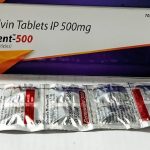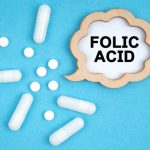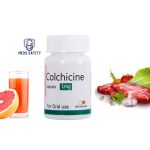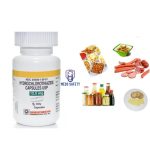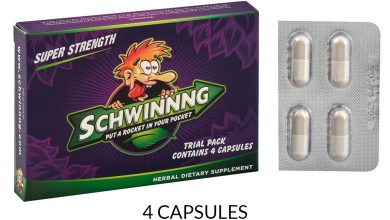10 Common Foods to Avoid When Taking Hydroxyurea

Hydroxyurea is a medication commonly prescribed to manage certain medical conditions, including sickle cell disease and certain types of cancers. While this medication can be effective in treating these conditions, it’s important to be aware of potential interactions with certain foods. Some foods may interfere with the absorption or efficacy of hydroxyurea, and understanding which ones to avoid can contribute to a more successful treatment plan.
In this article, we will explore a comprehensive list of foods to avoid when taking hydroxyurea, ensuring individuals can make informed choices to optimize their health during treatment.
What is Hydroxyurea?
Hydroxyurea is a medication widely used in the treatment of various blood disorders and cancers, showcasing its versatility in the medical field. One of its primary applications is in managing sickle cell disease, a genetic disorder characterized by abnormal hemoglobin and distorted red blood cells. Hydroxyurea has also proven effective in addressing myeloproliferative disorders, such as essential thrombocythemia and polycythemia vera, where it helps regulate the overproduction of blood cells. Additionally, hydroxyurea is utilized as a chemotherapy agent for specific types of cancers, demonstrating its broad spectrum of medical applications.
Mechanism of Action
The effectiveness of hydroxyurea lies in its ability to interfere with the synthesis of DNA, a fundamental process for cell growth and division. This inhibition occurs through the drug’s action on an enzyme called ribonucleotide reductase, responsible for converting ribonucleotides into deoxyribonucleotides, essential building blocks for DNA. By impeding this process, hydroxyurea disrupts DNA synthesis, particularly affecting cells during the S phase of the cell cycle, where DNA replication occurs. This targeted mechanism makes hydroxyurea S-phase specific, rendering actively dividing cells more susceptible to its effects.
In sickle cell disease, hydroxyurea offers an additional benefit by inducing the production of fetal hemoglobin. This alternative hemoglobin structure differs from the abnormal hemoglobin associated with sickle cell disease, mitigating the sickling of red blood cells. As a result, hydroxyurea helps improve blood flow, reduce the frequency of painful crises, and enhance the overall quality of life for individuals with sickle cell disease.
Common Foods to Avoid When Taking Hydroxyurea
There are several well-known foods to avoid while taking Hydroxyurea, they include:
1. Grapefruit and Grapefruit Juice: Grapefruit and grapefruit juice contain compounds that can interfere with the metabolism of certain medications, including hydroxyurea. These compounds inhibit the activity of enzymes in the liver responsible for drug metabolism, potentially leading to increased levels of hydroxyurea in the bloodstream.
2. High-Iron Foods: Hydroxyurea may increase the absorption of iron in the body. Consuming foods high in iron, such as red meat, liver, and fortified cereals, may exacerbate this effect and lead to elevated iron levels. Excessive iron can be harmful and may contribute to oxidative stress.
3. Alcohol: Alcohol consumption can have adverse effects on liver function, and since hydroxyurea is metabolized in the liver, combining it with alcohol may intensify the medication’s impact on this organ. Individuals taking hydroxyurea should consult their healthcare provider about alcohol consumption to ensure a safe and effective treatment plan.
4. High-Fat Foods: High-fat foods, especially those rich in saturated fats, can affect the absorption of hydroxyurea. Fatty foods may slow down the absorption of the medication, potentially reducing its effectiveness. Patients are advised to maintain a balanced and healthy diet, avoiding excessive consumption of high-fat items.
5. Leafy Green Vegetables: While leafy green vegetables are generally considered healthy, they contain high levels of vitamin K. Vitamin K plays a crucial role in blood clotting, and excessive consumption may interfere with the anticoagulant effects of hydroxyurea. Individuals on hydroxyurea therapy should be mindful of their vitamin K intake and maintain a consistent dietary pattern.
6. Dairy Products: Calcium-rich dairy products, such as milk and cheese, can interfere with the absorption of hydroxyurea. Calcium may form complexes with the medication, reducing its bioavailability. To ensure optimal absorption, it is recommended to separate the intake of hydroxyurea and dairy products by a few hours.
7. Salty Foods: Sodium-rich foods, such as processed and salty snacks, can contribute to fluid retention. Since hydroxyurea may affect blood cell counts, it is essential to maintain proper hydration. Excessive sodium intake can lead to fluid imbalances, potentially complicating the treatment process.
8. Certain Herbal Supplements: Herbal supplements, particularly those with potential blood-thinning effects, may interact with hydroxyurea. Examples include ginkgo biloba, garlic supplements, and ginger. It is crucial to inform healthcare providers about all supplements being taken to prevent possible interactions.
9. High-Fiber Foods: While fiber is an essential component of a healthy diet, excessive fiber intake can affect the absorption of hydroxyurea. High-fiber foods, such as whole grains and certain fruits and vegetables, should be consumed in moderation to avoid potential interference with medication absorption.
10. Caffeine: Caffeine, found in coffee, tea, and some soft drinks, can potentially interact with hydroxyurea. While the evidence is limited, some studies suggest that caffeine may affect the metabolism of certain medications. Patients should discuss their caffeine consumption with their healthcare provider to determine if adjustments are necessary.
Conclusion
Managing a condition with hydroxyurea requires a comprehensive approach that includes not only medication adherence but also attention to dietary factors. Avoiding certain foods can help ensure the optimal effectiveness of hydroxyurea and minimize the risk of potential interactions. Individuals undergoing hydroxyurea therapy should always consult with their healthcare provider or a registered dietitian to create a personalized and balanced diet plan that aligns with their specific health needs. This collaborative approach can contribute to a more successful treatment outcome and improved overall well-being.

